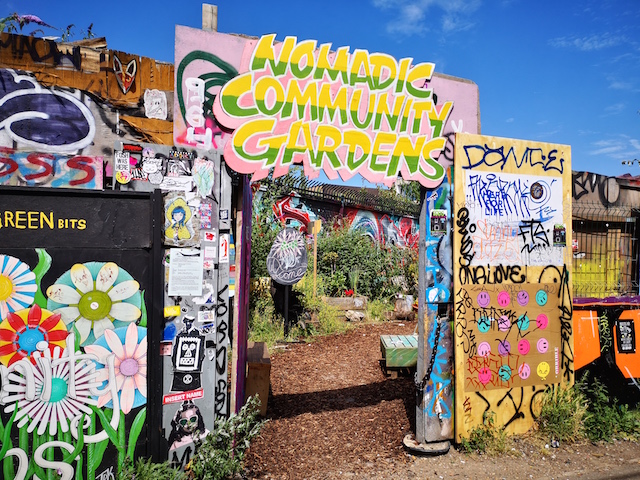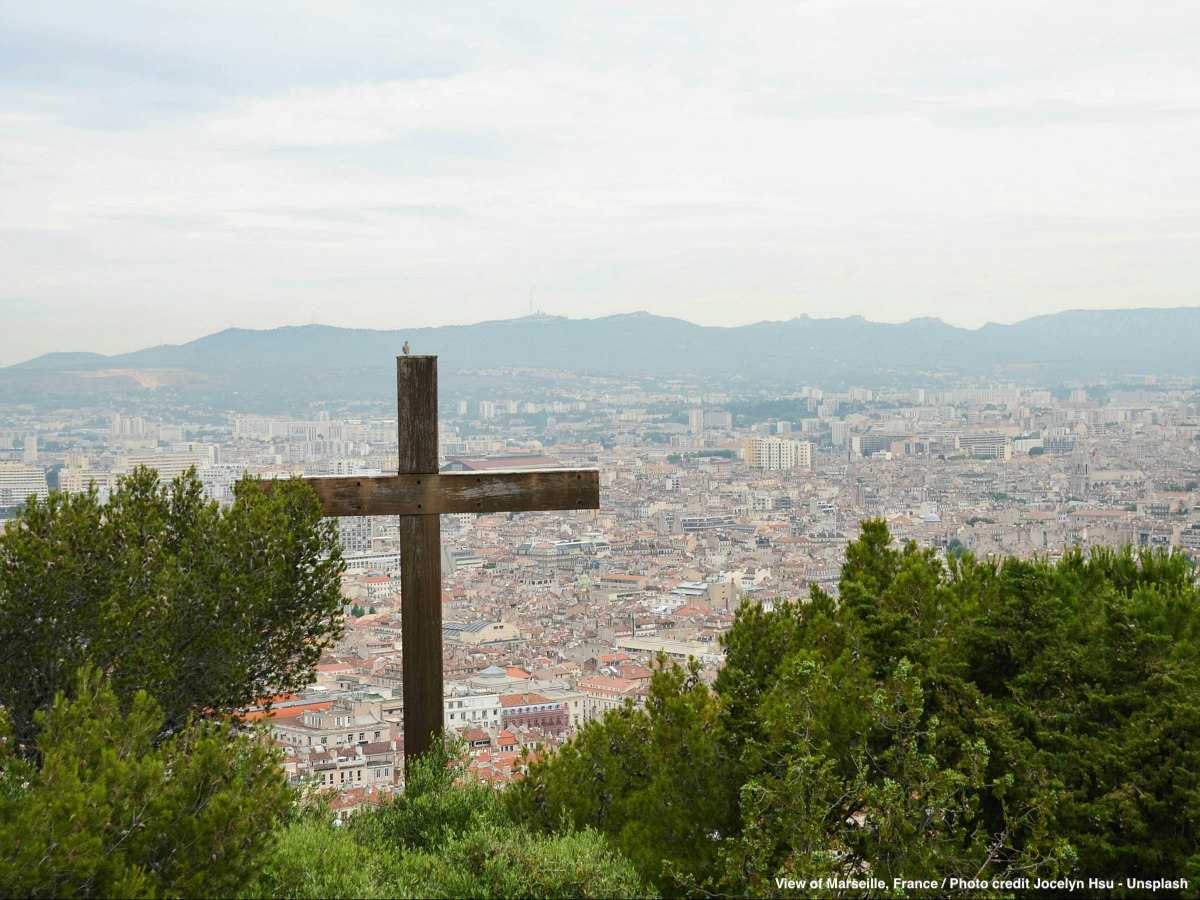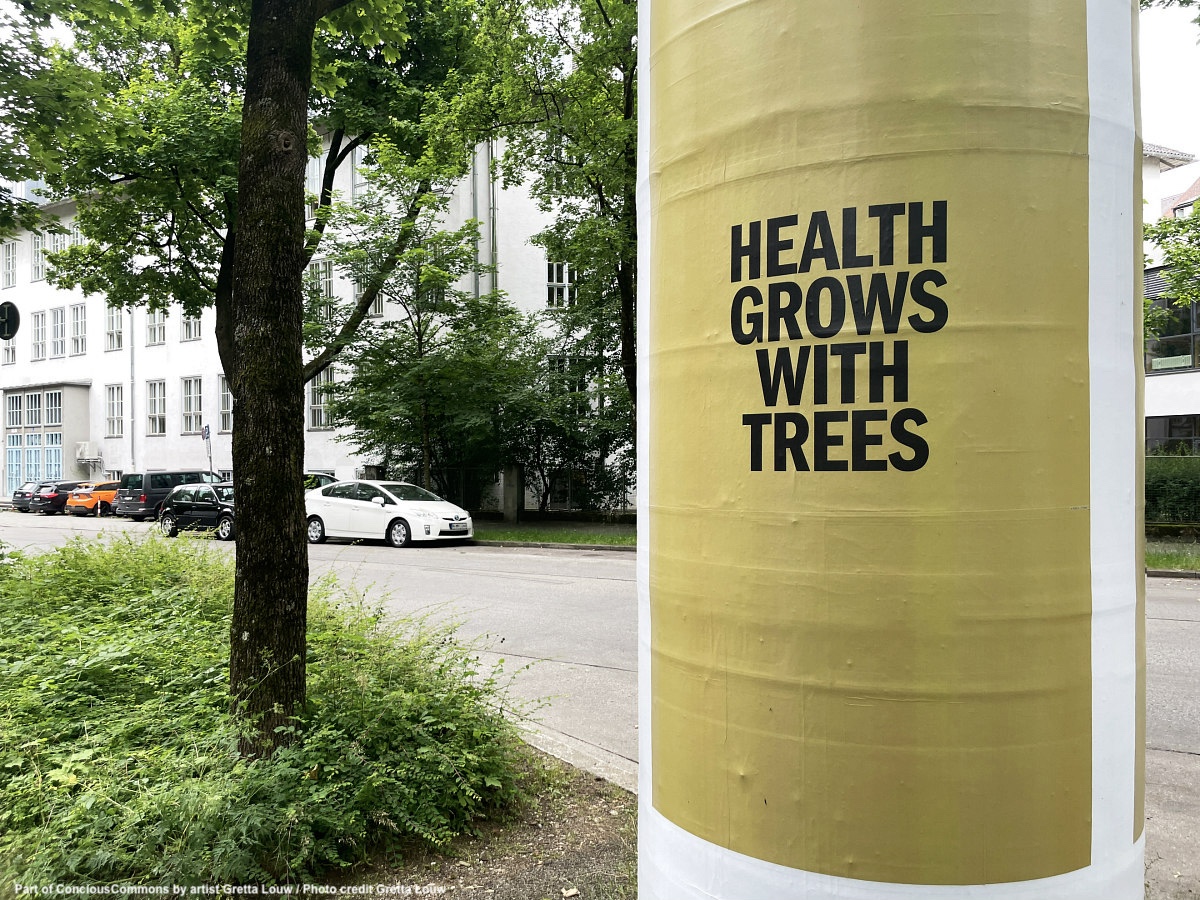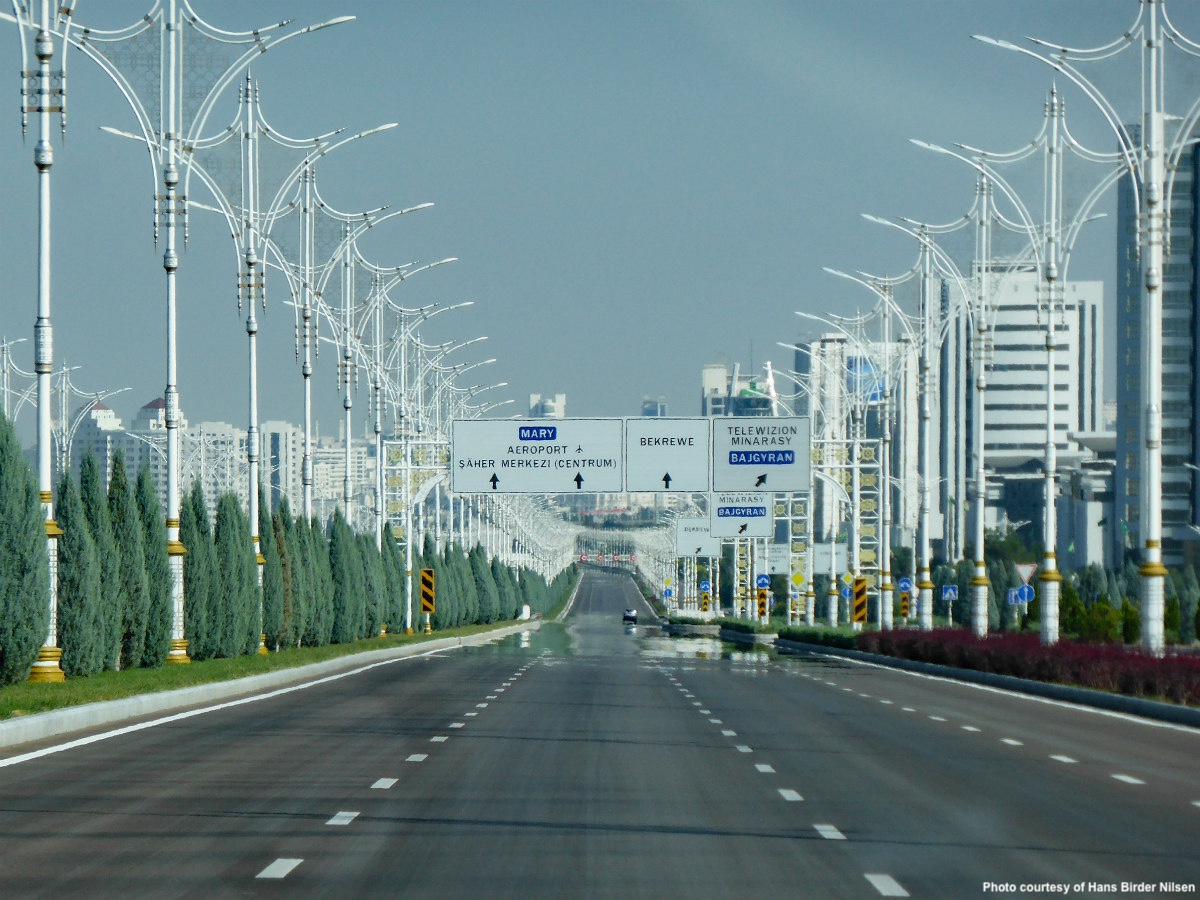There is a hidden urban garden at the heart of the Shoreditch neighbourhood called Nomadic Gardens. This meanwhile space patterned with a playful expression of creativity, from street art to other forms of art, encapsulates London’s rich diversity while contributing to shaping the landscape of urban planning in the city.

It is an urban open space transformed from neglect to be a vital point of social interaction and community building. Its metamorphose mirrors the vision of founder, James Wheale, creating, as he calls it, ‘third places’ that cities so desperately need. He is putting meanwhile space to good use.
We are not a political stand to save a disused land from development. Nomadic Gardens is a way to exist between the cracks left by urban planning, explains Wheale.
He is referring to the individualism and the avenues of anonymity paving our cities.
You have an obligation to feel good at Nomadic Gardens. People grow their own produce, create art and share skills. It is quite a community space, which breaks down barriers out of the straightjacket of conventional urbanism. People are not here for money but solidarity. You clearly see a community thriving in its own way.
Jimmy, as people call him, plays a big part in creating this spirit. When you listen to Jimmy Wheale, he captivates your attention with his eloquence and vision. He has a broader understanding of how a city functions and which role Nomadic Gardens should play in such a complex urban society.
When Wheale encountered the current owner of the space, the property developer LondoNewcastle, he was well prepared to lay down the core benefits of a partnership between developer and community. Before they met, Wheale had been already trying to convince the previous owner of the land, the Network Rail Company, for three years to temporarily allow him to use the land, which they rejected on the grounds of safety.
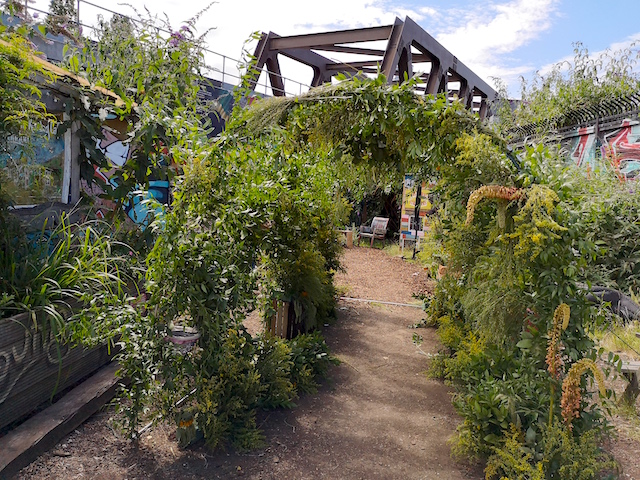
‘We were extremely lucky that the Railway company ended up selling the land to LondoNewcastle because they turn out to be a very progressive company’ explains Wheale. ‘We could prove that we already had a lot of local support for the project. They understood we could help demonstrate to local councillors on planning forums a legitimate way of offsetting the potential impact that their development might have on the area. We could also create a substantial and sustainable ‘conduit’ between developers and residents and provide a great opportunity for corporate responsibility while inspiring their staff to participate in the project’.
Community projects and pop up stores and galleries in disused spaces are taking advantage of the meanwhile time period in cities. They contribute in a way to a new kind of informal urbanism building social wealth at locations, which these projects could not afford otherwise.
So does Nomadic Gardens. From Brick Lane, go to Allen Gardens, go left through the underpass and you will see them. Alternatively, cross the footbridge from Cheshire Street and you will see a door opposite the bottom of the steps. They are located in the space between the two overground lines.
There are always people around the garden. People feel safe here. It is accessible to everyone from morning to evening 6 days a week. This accessibility is a big part of its success. The fact that outsiders are allowed to come in and spend time at this space makes it incredibly lively while bringing significant income to the garden in form of donations that can be left at the entrance by visitors.
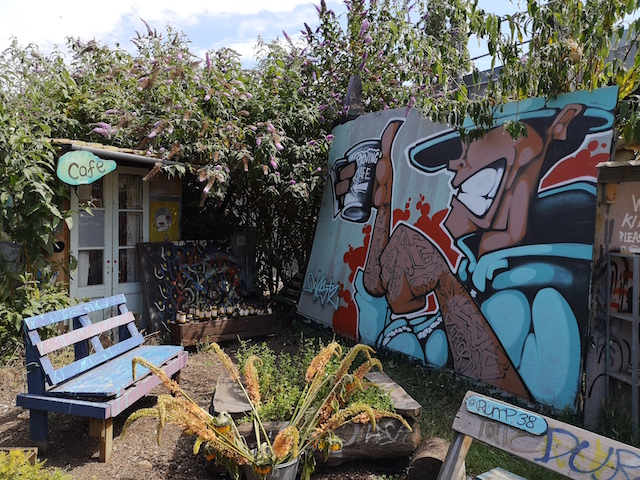
Many community urban gardens are limited to neighbours who will randomly drop in the garden to take care of their plant beds and leave. In fact a common factor of frustration at organizers of community gardens or spaces is how to engage people more actively.
‘We try not to be prescriptive in any sense and users of the space respect and enjoy that freedom. Everybody works very autonomously and feel proud of it. Volunteers are always welcome to bring their ideas and passions to the space without expectations. We have become a launch pad for local initiatives and local talent’, points out Wheale.
With the right framework of freedom you can see how quickly things can escalate in a positive way. Nomadic Gardens could actually reflect on Richard Benett’s concept of ‘The Open City’. He proposes to ‘look at the city in a more embracing way. Currently, we make cities into closed systems. To make them better, we should make them into open systems. But just because a city brings together people who differ by class, ethnicity, religion, or sexual preference, in an open system, the city is to a degree incoherent. Dissonance marks the open way of life more than coherence, yet it is a dissonance for which people take ownership’.
Jimmy Wheale believes that people in cities don’t feel interconnected.
Cities are built in a way, which creates an atomised society and segregates citizens. Relationships have become very impoverished and people feel isolated and disempowered lacking the space needed for social growth.
Nomadic Gardens has breathed life into a disused part of the city, which has become a place where community thrives. By opening this meanwhile space up they are enabling local residents to re-establish their communities, to learn new skills, discover new interests and find new purposes. The space provides people from different backgrounds and cultures with universal activities that are designed to create dialogue, from where relationships start to form and people are able to relate to each other.
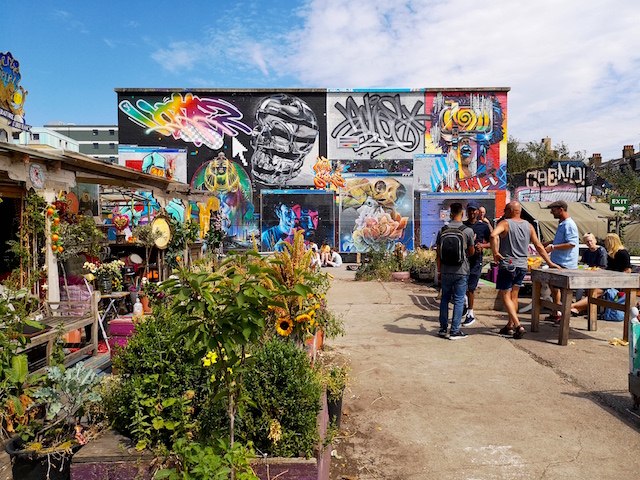
‘This could be a watershed moment in the landscape of urban planning, where there is greater cohesion between councils, developers and local residents to increase the public sphere’ claims Jimmy.
Projects like Nomadic Gardens at meanwhile space belong to an entirely informal urbanism, which is adding a more heterogenized urban experience at neighbourhoods thanks to open-minded property developers and city administrators, both willing to improve the landscape of urban planning in London.
